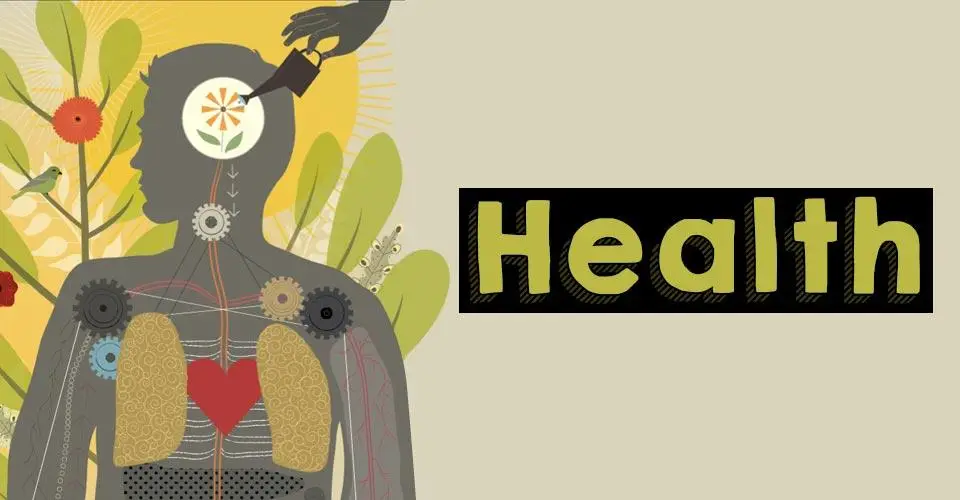In the digital age, the importance of health information management cannot be understated. From electronic medical records to patient data security, this field plays a critical role in the modern healthcare system. Let’s delve into the world of health information management and explore how it impacts the way we access, use, and protect vital health information.
The importance of accurate health information management

Accurate health information management is crucial for ensuring the well-being of individuals and the efficiency of healthcare systems. When health information is managed accurately, it enables healthcare providers to make informed decisions, provide appropriate treatments, and deliver quality care to patients. Inaccurate or incomplete health information can lead to errors in diagnosis, treatment, and medication, putting patients at risk.
Effective health information management also plays a key role in the coordination of care across different healthcare settings. By maintaining accurate and up-to-date records, healthcare providers can easily share information with other members of the care team, ensuring continuity of care and preventing duplication of tests or procedures. This ultimately leads to a more streamlined and efficient healthcare system.
Furthermore, accurate health information management is essential for research and public health initiatives. By aggregating and analyzing health data, researchers can identify trends, patterns, and risk factors that can help inform public health policies, preventive strategies, and treatment guidelines. This valuable information can potentially improve health outcomes on a larger scale.
Key components of effective health information systems

Effective health information systems are crucial for maintaining and improving the quality of healthcare services. These systems must be equipped with key components to ensure accurate data collection, analysis, and dissemination. Below are some essential elements that contribute to the effectiveness of health information management:
- Electronic Health Records (EHRs): EHRs are digital versions of patient records that contain comprehensive information about a patient’s medical history, treatments, and test results. They enable healthcare providers to access and update patient information easily, leading to better coordination of care.
- Data Security Measures: Ensuring the security and confidentiality of patient data is paramount in health information management. Strong encryption protocols, access controls, and regular audits are essential to protect sensitive information from unauthorized access.
- Data Analytics Tools: Data analytics tools help healthcare organizations make sense of vast amounts of data collected from various sources. These tools can identify trends, patterns, and insights that inform decision-making and improve patient outcomes.
Furthermore, interoperability between different healthcare systems is crucial for seamless data exchange and communication. Standardized coding systems, such as ICD-10 and CPT, help ensure consistency and accuracy in medical coding and billing. By incorporating these key components into health information systems, healthcare organizations can enhance efficiency, quality of care, and patient satisfaction.
Challenges and best practices in health information security

When it comes to managing health information, there are various challenges and best practices that organizations must consider to ensure the security of sensitive data. One of the main challenges in health information security is the increasing sophistication of cyber threats targeting healthcare organizations. From ransomware attacks to data breaches, there is a constant need for robust security measures to protect patient information.
Implementing encryption protocols for data storage and transmission can be a crucial best practice in safeguarding health information. By encrypting data at rest and in transit, organizations can add an additional layer of protection against unauthorized access. Regularly updating security protocols and conducting vulnerability assessments can also help identify and address potential weaknesses in the system.
Furthermore, training staff members on proper security protocols and procedures is essential in maintaining a secure environment for health information. Educating employees on the risks of phishing scams and social engineering tactics can help prevent human errors that could compromise data security. Establishing clear access controls and monitoring user activity can also help prevent unauthorized access to sensitive information.
Improving patient care through efficient health information management practices

Efficient health information management practices play a crucial role in enhancing patient care and overall healthcare outcomes. By effectively organizing and maintaining patient health records, healthcare providers can streamline processes, reduce errors, and improve the quality of care they deliver.
One key aspect of efficient health information management is the implementation of electronic health records (EHR) systems. These digital systems allow for easy access to patient information, facilitate communication between healthcare providers, and enable real-time data sharing for better decision-making.
Additionally, leveraging data analytics tools can help healthcare organizations identify trends, monitor patient progress, and track outcomes. By analyzing this data, providers can make informed decisions about treatment plans, interventions, and resource allocation, leading to improved patient care and better health outcomes.
It is essential for healthcare organizations to continuously evaluate and optimize their health information management practices to ensure they are meeting the needs of patients and healthcare providers. By prioritizing efficiency and accuracy in managing health information, organizations can enhance the overall quality of care they provide and ultimately improve patient outcomes.
Q&A
Q: What is health information management?
A: Health information management is the practice of acquiring, analyzing, and protecting medical information vital to providing quality patient care.
Q: Why is health information management important?
A: Health information management ensures patient data is accurate, confidential, and easily accessible to healthcare professionals, contributing to better treatment outcomes.
Q: What skills are required to work in health information management?
A: Professionals in health information management need strong analytical, technical, and organizational skills, as well as knowledge of medical terminology and privacy laws.
Q: How does technology impact health information management?
A: Technology has revolutionized health information management, enabling the electronic storage and sharing of patient records, streamlining administrative tasks, and improving coordination of care.
Q: What are potential career paths in health information management?
A: Graduates in health information management can pursue roles as health information technicians, medical coders, clinical data analysts, or health information managers in various healthcare settings.
Q: How does health information management contribute to healthcare quality and safety?
A: Health information management plays a critical role in ensuring accurate patient diagnoses, treatment plans, and medication administration, thereby improving overall healthcare quality and safety.
The Conclusion
In conclusion, effective health information management is essential for the smooth and efficient operation of healthcare organizations. By ensuring the accurate collection, storage, and utilization of patient data, healthcare professionals can make informed decisions that improve patient outcomes and drive overall efficiency. As technology continues to evolve, the field of health information management will play an increasingly crucial role in shaping the future of healthcare. Stay informed, stay organized, and prioritize the management of health information for a healthier tomorrow.



